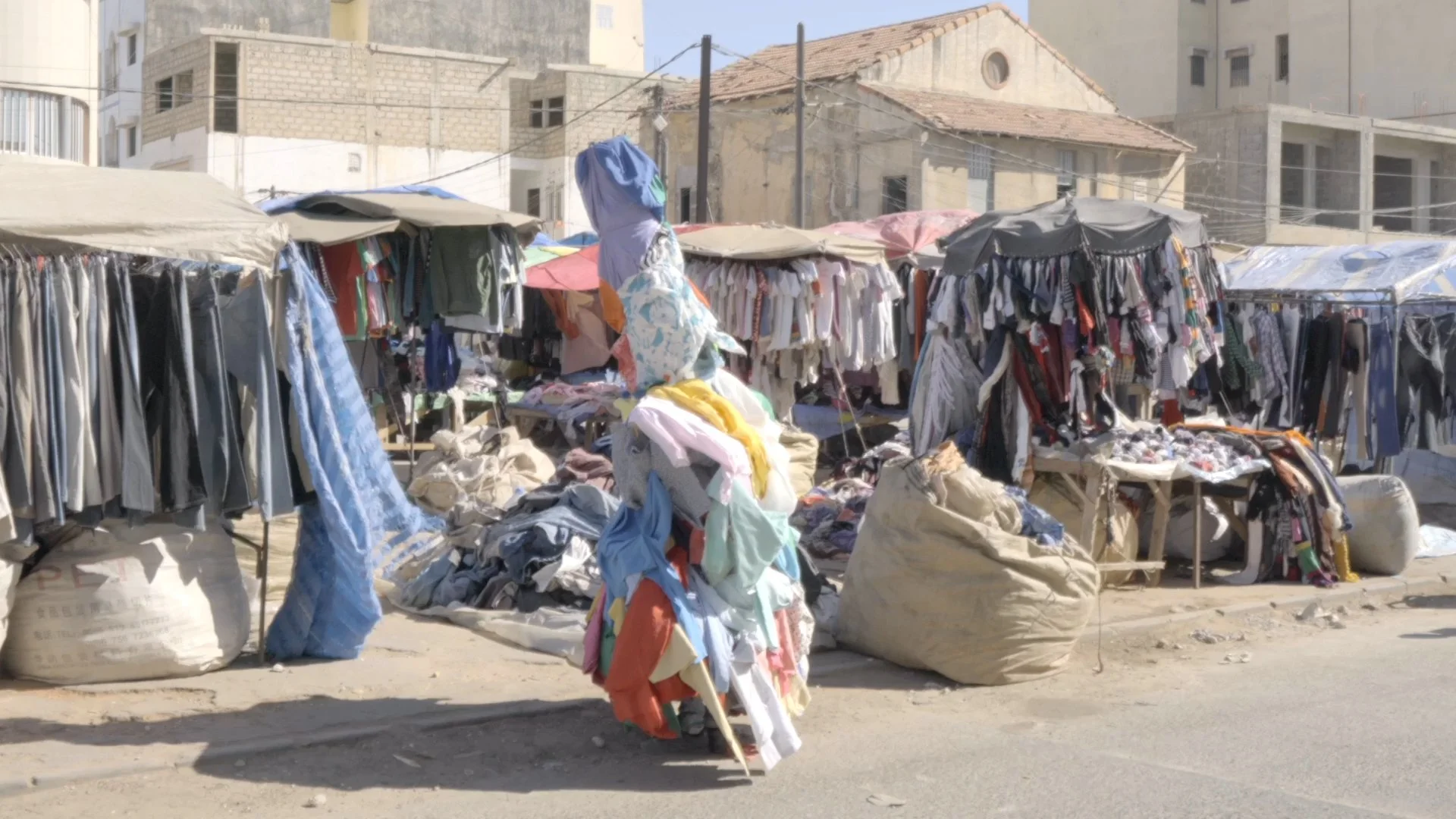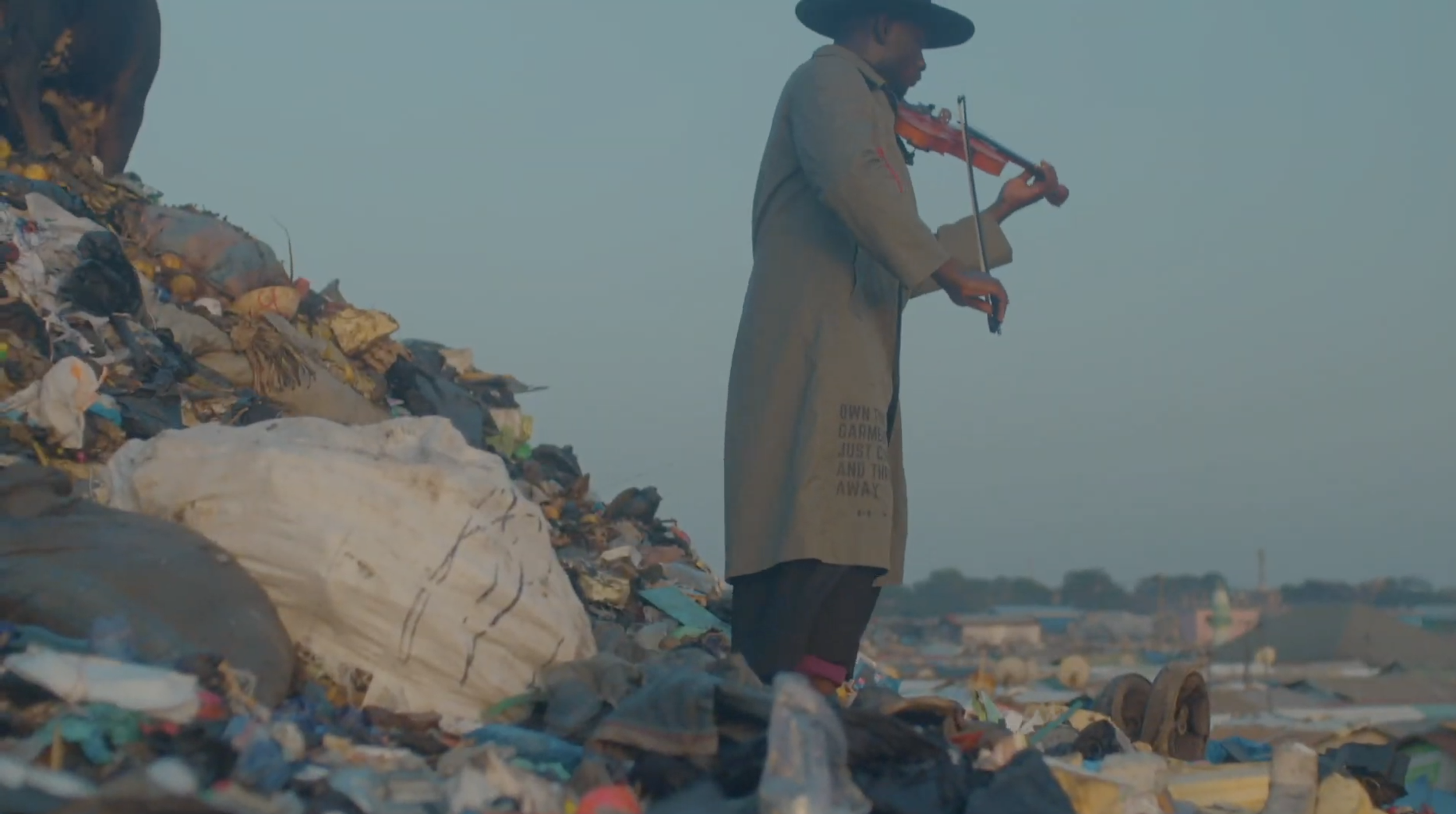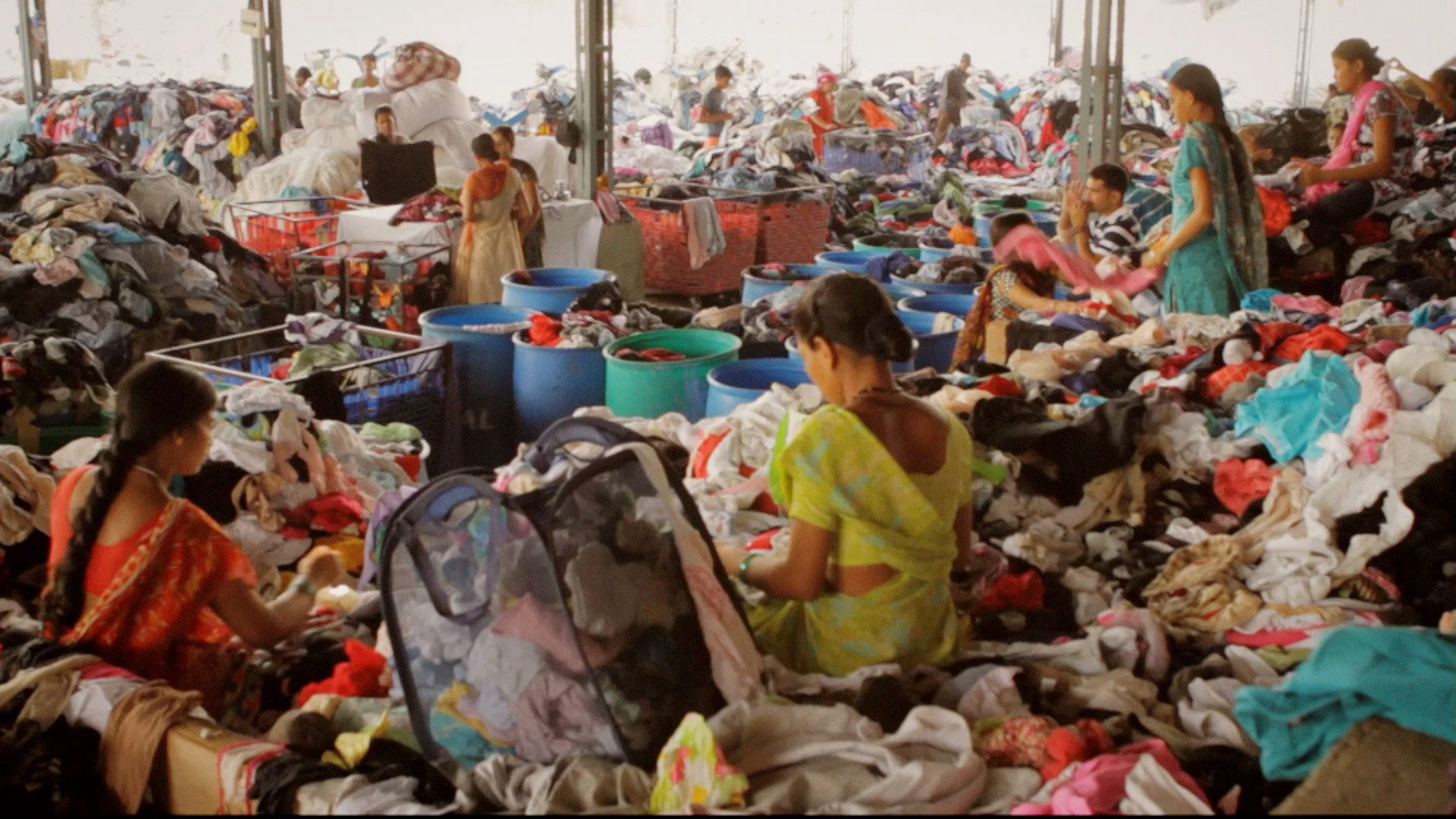
Ready-to-Wear
Landscapes
+ Panel
Watershed Bristol
The production, dispersal and eventual re-distribution of clothing is one of the protagonists of the climate crisis. This programme zooms in on the term ‘waste colonialism’ and reveals the ways in which creativity can be deployed to amplify collective concerns. The term first emerged in 1989 during discussions surrounding the Basel Convention, a global agreement addressing the transboundary movement of hazardous waste, yet for all the current discourse around border controls and the free movement of people, the Global North is less anxious traversing boundaries when finding new places to dump its waste. The tradition of wealthy, industrialised nations exporting their clothing and textile cast-offs to less developed countries has created a complex geopolitical and industrial ecosystem all of its own.
The entangled legacies of colonialism run through this programme together with the speed at which fashion is in search of the new. In their films, Meghna Gupta, Yayra Agbofah and Jeremy Hutchison re-dress us in our old clothes, picking at the problem of colonial waste with urgency and imagination.
The screening is followed by a panel discussion between the artists, chaired by Matthew Needham.
Screenings
Bristol – Watershed
Saturday 6 September, 15:00
With panel discussion chaired by Matthew Needham.
This screening is closed captioned and includes live BSL interpretation.
Matthew Needham
Matthew Needham is a British-Czech multidisciplinary artist, curator, and sustainability lecturer known for his pioneering work at the intersection of creativity and environmental responsibility. He is the co-founder of Trash Club, a global community launched in 2021 to unite and support independent creatives with a focus on sustainability, inclusivity, and social justice
Meghna Gupta is an award-winning factual director and producer - and her work is often centred around stories from South Asia. She works with academic projects on film collaborations, creating access to research, and has worked in broadcast for Channel 4, Al Jazeera, BBC, ZDF and ORF. She also co-produces and programmes Otherfield, a film festival centred around independent non-fiction.
Yayra Agbofah is a creative social entrepreneur based in Accra, Ghana. In 2018, he founded The Revival, a sustainable design organization that educates, raises awareness, fosters artistic expression and creates jobs by upcycling textile waste imported from the Global North. Through his consultancy and collective, AfroDistrict, Agbofah addresses social and environmental challenges via art, education, and entrepreneurship, amplifying the voices and self-belief of a new generation of young creatives and fashion entrepreneurs across Africa.
Jeremy Hutchison is a British artist working across performance, sculpture and video. His practice explores power and resistance and much of his work intervenes in systems of global production, interrogating the relationship between consumerism and Empire. Working globally, his practice looks for ways to collapse geographic, historic and bodily space to explore the entanglement between current consuming practices and histories of colonial domination. He has exhibited at the ICA, Modern Art Oxford, Fondazione Prada, Lisson Gallery and Espoo Museum of Modern Art among others. He has held residencies including Delfina Foundation, Arts Catalyst and Hospitalfield.
Dead White Man
UK, 2023. Dir. Jeremy Hutchison. 7min. English. In his ongoing research project, artist Jeremy Hutchison employs performance, sculpture and photography to remind us of the 24 billion garments that enter the second-hand clothing market each year. In this short film – laced with dry humour, and a foreboding soundtrack – Hutchison’s own white, male, Western consumer body is festooned in sculptures made from such discarded clothes. He waddles through the streets of Dakar before finding his way into a shipping container and re-emerges in the City of London. The title of the project comes from the Ghanaian ‘obroni wawu’ which directly translates as ‘Dead White Men’s Clothes’. Against the mountains of textile waste that have created new geographies across the African continent, Hutchison hijacks the seductive air of glossy fashion editorials and the perverse bricolage of contemporary art and uncovers the grim failures of capitalism.
The Revival
Ghana, 2025. Dir. Yayra Agbofah. 13min.It is estimated that between 30%-40% of the used garments sent to Ghana are in such poor condition that they cannot be resold locally. It is these clothes that plug landfills, wash up on shores, or worse, are burned in giant bonfires that pollute the air. This poetic call to action on provenance, production and politics follows the day-to-day activity and activism of The Revival, a community-led non-profit organisation based in Accra. Since 2019 The Revival has collected unsaleable garments from Kantamanto Market and worked them into unique one-of-a-kind pieces of fashion. This film offers a front row seat to the dual efforts of reducing waste while creating green jobs, resulting in over one million upcycled garments per year.
Unravel
India/UK, 2012. Dir. Meghna Gupta. 14min. Hindi with English subtitles. In the Kutch District of western India and the northern city of Panipat, a group of female garment workers sort piles of crystal-studded underwear, froufrou polyester wedding dresses and heavy denim jeans with a mixture of suspicion and wonder. We often speak about fashion’s effect on the Global South, but rarely do we hear from its inhabitants in their own voices. Meghna Gupta’s spirited documentary adds nuance to how we are often invited to perceive the ‘victims’ of unjust geo-political relations. Gupta follows the garment workers as they spend their days unpicking and unravelling tonnes of discarded American clothes, before they can be shredded and spun into new yarn. Her film illuminates the circularity involved in textile production and becomes a vital conduit for a new kind of gaze.



